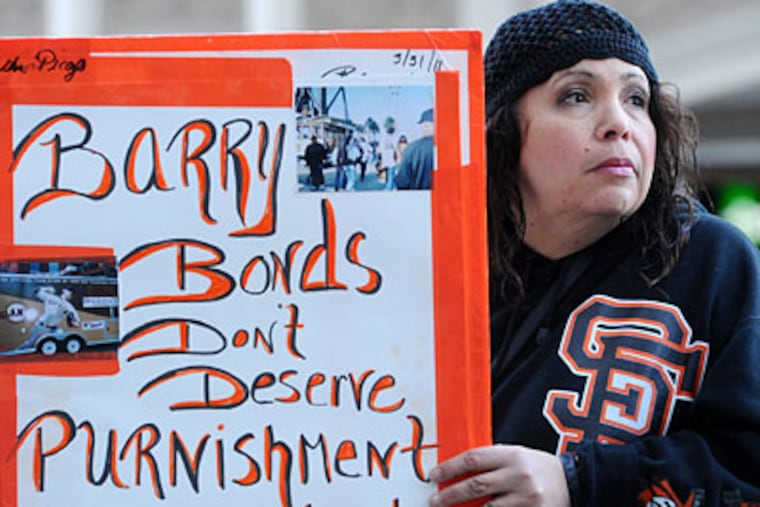Bonds appeals sentence
SAN FRANCISCO - Barry Bonds will remain free while he appeals his conviction for giving misleading testimony before a grand jury.

SAN FRANCISCO - Barry Bonds will remain free while he appeals his conviction for giving misleading testimony before a grand jury.
A federal judge handed Bonds a sentence of 30 days of house arrest, two years of probation, and 250 hours of community service on Friday - then delayed the sentence pending an appeal likely to take a year or more.
U.S. District Judge Susan Illston also put on hold a $4,000 fine against Bonds for his obstruction of justice conviction.
Prosecutors wanted the home run king to spend 15 months in prison. Assistant U.S. Attorney Matthew Parrella called the sentence a "slap on the wrist" and the fine "almost laughable." Parrella disagreed with the judge's conclusion that the crime was "aberrant" behavior for an otherwise law-abiding Bonds.
"The defendant basically lived a double life for decades," argued Parrella, who said Bonds tested positive for steroids and amphetamines during his playing days. "He had mistresses throughout his marriages."
Illston said none of that had any bearing on Bonds' sentence. She agreed with a probation department report that called Bonds' conviction an "aberration" in his life. She said she received "dozens" of letters in support of Bonds and discussing how he has given money and time "for decades" to charitable causes.
A jury convicted Bonds in April of purposely answering questions about steroids with rambling non sequiturs in an attempt to mislead a grand jury investigating sports doping in December 2003. Bonds' trial jury failed to reach a verdict on three other charges accusing Bonds of lying when he denied taking performance-enhancing drugs and when he denied receiving injections from someone other than his doctor.